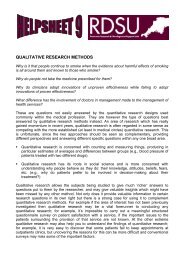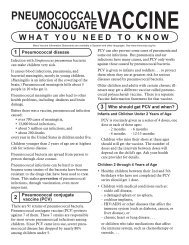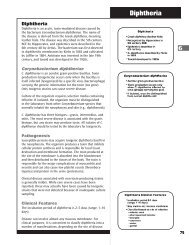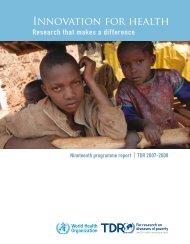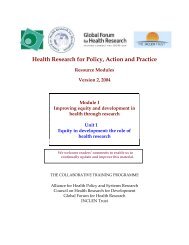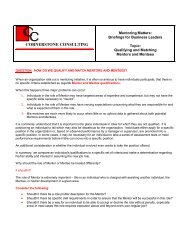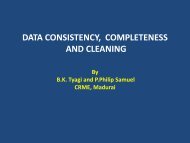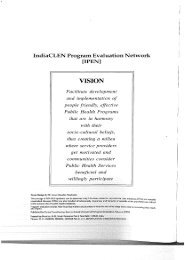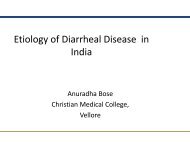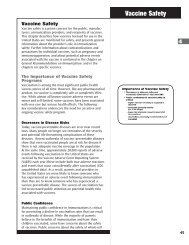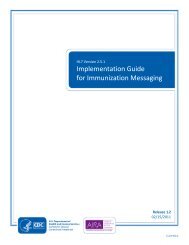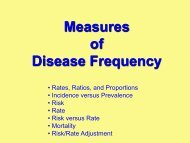Measles, Mumps, and Rubella - Centers for Disease Control and ...
Measles, Mumps, and Rubella - Centers for Disease Control and ...
Measles, Mumps, and Rubella - Centers for Disease Control and ...
You also want an ePaper? Increase the reach of your titles
YUMPU automatically turns print PDFs into web optimized ePapers that Google loves.
20 MMWR May 22, 1998Transmission of mumps has occurred in medical settings (122 ). There<strong>for</strong>e, immunityto mumps is highly desirable <strong>for</strong> all health-care workers (Table 1). Adequatemumps vaccination <strong>for</strong> health-care workers born during or after 1957 consists of onedose of live mumps-containing vaccine.MMR vaccine generally should be used whenever any of its component vaccines isindicated. However, if the prospective vaccinee has acceptable evidence of immunityto one or two of the components of MMR vaccine (Table 1), a monovalent or bivalentvaccine can be used.International Travel<strong>Measles</strong>, rubella, <strong>and</strong> mumps are endemic in many countries. Protection againstmeasles is especially important <strong>for</strong> persons planning <strong>for</strong>eign travel, including adolescents<strong>and</strong> adults who have not had measles disease <strong>and</strong> have not been adequatelyvaccinated, <strong>and</strong> infants aged 6–11 months. Similarly, protection against rubella is especiallyimportant <strong>for</strong> women of childbearing age who are not immune to the disease.Although proof of vaccination is not required <strong>for</strong> entry into the United States, personstraveling or living abroad should ensure that they are immune to measles, rubella, <strong>and</strong>mumps.Persons who travel or live abroad <strong>and</strong> who do not have acceptable evidenceof measles, rubella, <strong>and</strong> mumps immunity (Table 1) should be vaccinated with MMR.Children who travel or live abroad should be vaccinated at an earlier age than recommended<strong>for</strong> children remaining in the United States. Be<strong>for</strong>e their departure from theUnited States, children aged ≥12 months should have received two doses of MMRvaccine separated by at least 28 days, with the first dose administered on or after thefirst birthday. Children aged 6–11 months should receive a dose of monovalent measlesvaccine be<strong>for</strong>e departure. If monovalent measles vaccine is not available, nospecific contraindication exists to administering MMR to children aged 6–11 months.However, because the risk <strong>for</strong> serious disease from either mumps or rubella infectionamong infants is relatively low <strong>and</strong> because children aged



